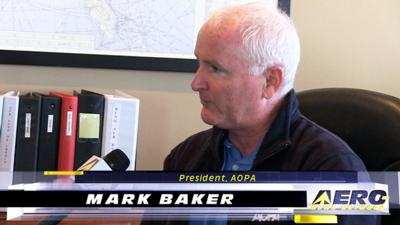Medical Reform, Certification, ADS-B All On AOPA's List Of Concerns
AOPA President Mark Baker highlighted issues affecting general aviation oversight, regulation, and certification during testimony before the House Transportation and Infrastructure Committee on Tuesday.

Baker, who presented a statement and testified during a Nov. 18 hearing on “FAA Reauthorization: Issues in Modernizing and Operating the Nation’s Airspace,” told Committee members that the general aviation industry is under stress made worse by outdated and cumbersome FAA regulations and procedures.
“The regulatory and certification processes used today may have been needed 30 or 40 years ago, but they simply cannot keep pace with today’s rapid changes and improvements in technology,” Baker told the Committee. “Changing these processes in ways that lower costs, reduce bureaucracy and improve safety will help grow general aviation. These should be our collective goals.”
The Committee will play a critical role in FAA Reauthorization, the process of enacting legislation to authorize funding and set policy priorities for the agency.
During his testimony, Baker cited three specific areas where the general aviation community needs greater support and responsiveness from the FAA—third-class medical reform, aircraft certification and the ADS-B Out mandate.
Baker told Committee members that third-class medical reform is long overdue, especially given that the requested changes would simply expand an existing FAA standard safely used by Sport Pilots for more than 10 years. He added that medical reform is a top priority for AOPA members and the Association is committed to continuing to work on a legislative solution in the next session of Congress.
In other areas, Baker told the panel, the highly prescriptive and inflexible nature of FAA regulations has prevented safety advances from reaching the GA community.
“While the FAA’s desire to create a ‘gold standard’ for safety is admirable, in practice this approach has had the opposite effect,” Baker said. “Allowing products that offer incremental safety improvements to reach the market more quickly would lower costs, simplify flying, and ultimately improve safety for folks flying today and into the future.”
Baker also told the Committee that the FAA’s ADS-B mandate is too expensive and threatens to ground or limit the use of many general aviation aircraft. Noting that more than 81,000 of the 188,000 certified piston-powered aircraft on the FAA registry are worth $40,000 or less, and those aircraft have a weighted average value of $25,800, Baker told the Committee that the minimum $5,000 cost to install required ADS-B Out equipment is beyond the reach of many aircraft owners.
Baker emphasized that funding the FAA through excise taxes collected on fuel, rather than a user-fee system, has proven both efficient and effective. He remarked that the FAA’s nearly $16 billion budget gives the agency sufficient resources to make needed changes in the way it oversees general aviation. The challenge facing the FAA, he said, is to use those resources to meet the needs of stakeholders and improve efficiencies.
“We need the FAA to embrace a system that can keep up with rapidly changing technology; that is comfortable with timely, economical, and incremental safety improvements; and that will actually work to reduce risk today for hundreds of thousands of GA pilots,” Baker said. “When pilots, industry, and the FAA work together we see positive results for general aviation.”
 ANN's Daily Aero-Linx (04.15.24)
ANN's Daily Aero-Linx (04.15.24) Classic Aero-TV: 'No Other Options' -- The Israeli Air Force's Danny Shapira
Classic Aero-TV: 'No Other Options' -- The Israeli Air Force's Danny Shapira Aero-News: Quote of the Day (04.15.24)
Aero-News: Quote of the Day (04.15.24) Airborne 04.16.24: RV Update, Affordable Flying Expo, Diamond Lil
Airborne 04.16.24: RV Update, Affordable Flying Expo, Diamond Lil ANN's Daily Aero-Term (04.16.24): Chart Supplement US
ANN's Daily Aero-Term (04.16.24): Chart Supplement US



